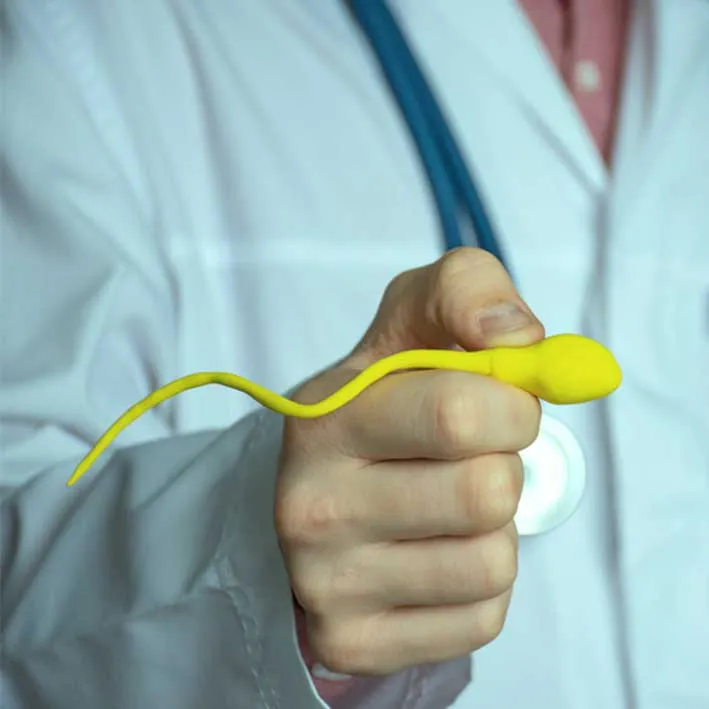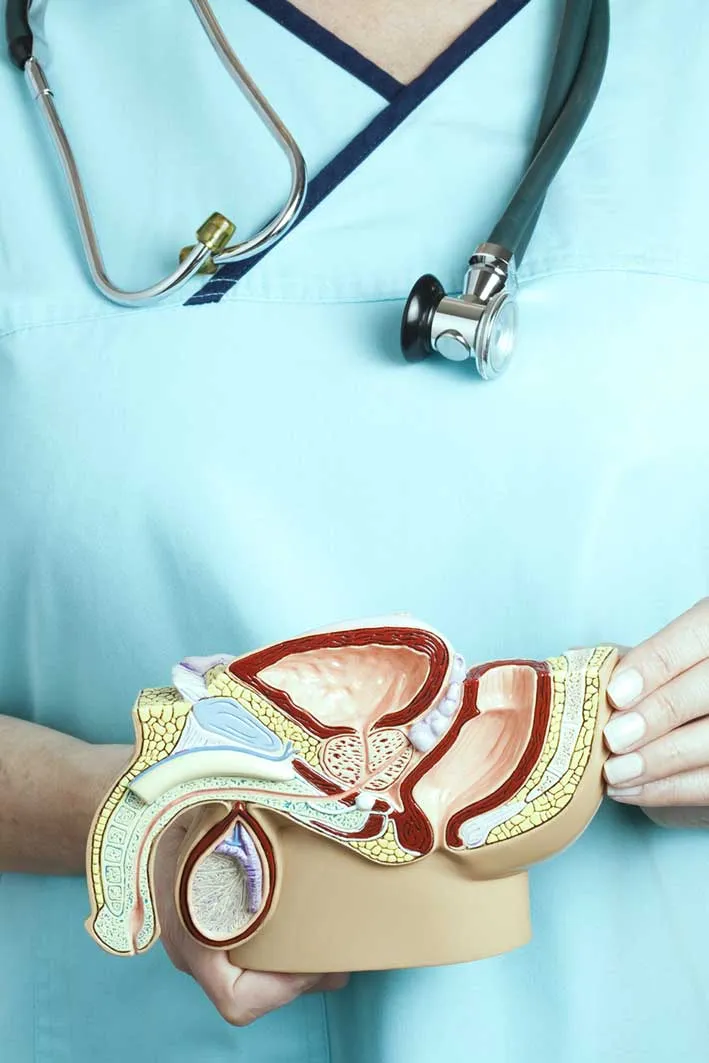Andrology is a branch of medicine concerned with male health, focusing on male fertility and sexual health. It is now widely accepted that the male factor is responsible for about 40% of the causes of infertility, the female factor for 40% and in 20% of the cases there is a combined male and female factor involved. Even with such a high incidence of male factor involvement, this branch of medicine has not been given due importance. We believe that the time has come, where attention needs to be paid to various social and physiological aspects of the male partner, in order to get a better understanding of the causes of male infertility.


Male factor infertility refers to the failure of a couple to achieve conception due to problems specifically related to the man's sperm, seminal fluid or reproductive organs. A number of things can affect sperm count, ability to move or ability to fertilize the egg
Abnormal Sperm Production / Function
Problems with ejaculation of sperm due to sexual problems, such as erectile dysfunction, Premature ejaculation, ejaculatory incompetence, retrograde ejaculation or blockage of the part of testicle that contains sperm epididymis or scarring from genital infection
General health and lifestyle issues such as poor nutrition, Obesity, stress or use of alcohol, tobacco and drugs
Over exposive to certain environmental hazards and toxins, such as pesticides, Lead, Paint, Radiation. Radioactive substance, Mercury, Benzene, Boron and heavy metals
Ageing Male - Men older than age 40 may be less fertile than younger man

We believe in individualized treatment protocols and for which evaluation of partners is absolutely essential. Our Andrologist Dr. M. Joe Kaushik is one of few Andrologist in India who is trained to improve the chances of natural conception by Cleveland Hospital (Ohio, USA)
Our Evaluation involves
Comprehensive analysis of your history and clinical examination
Advanced semen Analysis
This is the cornerstone for assessment of male fertility. We follow the most advanced methods of manual analysis (Add Standard) and CASA (for quality check) based on the recommendation of World Health Organization (WHO)
This test is sone to assess the function of the cells producing sperm in the testis
We offer a complete under one roof evaluation and treatment for male infertility. Correction of even subtle sperm abnormality is necessary to increase your fertility chance in natural conception / ART.

Azoospermia is the absence of sperms in a man’s ejaculate, and we find this usually in 15 – 20% of male infertility issues.

A semen analysis is used to find out if a problem with semen or sperm may be causing a man's infertility.
Simple lifestyle changes
Abstaining from alcohol, Tobacco and illicit drugs can improve male fertility. A healthy diet,
Sufficient (not excessive) exercise, Proper amounts of vitamin b12, vitamin C, Zinc also improves fertility
Endocrine management of Hypogonadism, Hyperprolactinoma, Excess Androgens/ Oestrogen,
Sertoli & Leydig cell dysfunction,Idiopathic infertility with pharmacologic therapy
1. For poor Sperm Quality
a. Varicocelectomy options
1. Microsurgical
2. Laparoscopic
3. Conventional
Suggested : Microscopic ultra High Magnification Carl Zeiss Subingen technique (25X Magnification)
Benefits :
- Faster Healing
- The Least chance of reoccurrence
- The Highest success rate
- Artery & Lymphatic Sparing
b. Intra testicular Growth factor Injection, It can increase sperm Quality for failed medical treatments
2. For Azoospermia (zero sperm count)
a. Microsurgical Epididymal Anastomosis
b. Microsurgical vasectomy Reversal
c. Microsurgical Vasovasostomy
d. Microsurgical Epididymal Sperm Aspiration
e Percutaneous Epididymal Sperm Aspiration
f. Testicular sperm Extraction (TESE)
3. For Non-obstructive Azoospermia
a. Intratesticular Autologous Mesenchymal Stem Cells
This technique involves injection of autologous mesenchymal
stem cells in to the testes to stimulate the production of sperm
Result: up to 80% of the individual will start to ejaculate the sperm in semen within 3-6 months of the Procedure
b. Microsurgical Testicular Sperm Extraction (Micro TESE)
a. Failed Conventional TESE
b. Klinefelter syndrome
c. Y chromosome microdeletion
d. Hypospermatogenesis
e. Maturation Arrest
f. Sertoli cell only syndrome
g. Idiopathi Azoospermia